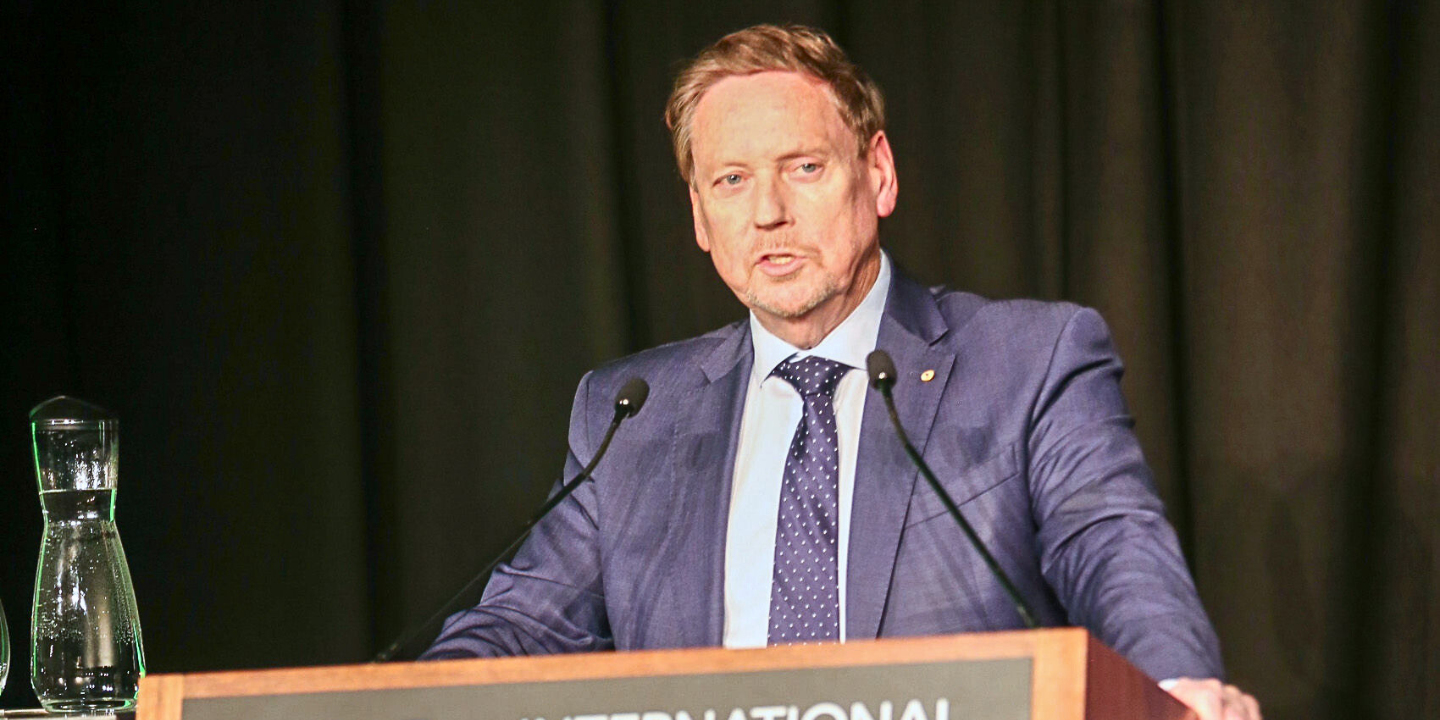
ACER Board Chair pays tribute to Geoff Masters
Comment 28 Aug 2024 6 minute readEmeritus Professor Bill Louden AM has lauded the achievements of Professor Geoff Masters, who will end his term as CEO of the Australian Council for Educational Research this month after 26 years at the helm, with the following tribute.
According to Socrates, an unexamined life is not worth living.
This must be especially true for a person like Geoff, who has spent so much time and effort thinking about examinations and assessment.
So, I thought I’d offer you a bit of a quantitative examination of Geoff’s contributions.
Let’s think about 4 dimensions in this assessment (we might think of them as scores on 4 empirically described rating scales). These are the 4 GM Rating™ scales:
- Psychometrics
- Thought leadership
- International impact
- Leadership
In each case, I’ll offer you some numbers to calibrate this assessment.
Psychometrics: #5,414
Geoff is a key figure in the development of the polytomous Rasch model for scaling assessment items in education. Nathan will be happy to explain the psychometrics of this to you later, but the number I want to refer to is 5,414 – the number of Google Scholar citations of Geoff’s 1982 article in Psychometrica – ‘A Rasch model for partial credit scoring’.
Or to put it another way, academics can’t publish stuff about rating scales without acknowledging Geoff’s contribution by adding Masters (1982) to the reference list.
There’s much more to be said about his theoretical and applied contributions to psychometrics, but that’s a very high GM Rating™ score of 5,414 for academic citations for a single, foundational journal article.
Thought leadership: #50,250
Geoff is the leading Australian education thinker of his generation. There is an arc of thinking in his career, from the construction of measurement scales to studies of intellectual growth, to promotion of readiness – not age – as the organising principle of students’ learning, and to consideration of the school and system characteristics required for improving learning.
The TORCH tests of reading comprehension developed with Leila Mossenson (1983) were an early application of Rasch modelling to reading tests. His work with Margaret Forster on Literacy Standards in Australia (1997) broadened this thinking to produce large-scale analyses of growth in achievement. The NSW Curriculum Review (2020) took this thinking about patterns of growth and argued that students’ readiness – their current location on a growth curve – rather than their age should be at the heart of the school curriculum.
Beyond these curriculum and assessment interests, Geoff has worked with school systems and sectors to develop school and system improvement tools. The oldest and most used of these, The National School Improvement Tool, has been downloaded 50,250 times since it was first published in 2013. (On Instagram, those follower numbers would put him in the top 5% globally.)
International impact: #90
Beyond the numbers, during Geoff’s time as CEO, ACER has become an indispensable partner of governments across the globe in educational assessment.
The year before Geoff took over from Barry McGaw, the ACER annual report noted a single international activity, an IDP project to develop national examinations in Cambodia. Last year, 40% of revenue was from international work. Geoff has led the internationalisation of ACER, through winning international contracts and then establishing international offices to support this work.
At the heart of this is PISA. For the first 5 cycles (2000-2012) ACER led the design and implementation of PISA. This work has come back to ACER for 2025. Geoff has leveraged ACER’s long involvement in PISA in his landmark study of the learning systems in 5 high-performing countries in PISA. I’m sure Geoff will continue to develop this work on learning systems as he moves beyond his ACER years.
But back to the GM Rating™ scales, the number 90 refers to the number of countries with which ACER is interacting through PISA 2025. That’s a world away from one, in 1997-98.
Leadership: #111,246,653
The final GM Rating™ scale dimension is leadership.
The year before Geoff took over as CEO, ACER revenue was $15 m, 11% of which was in uncontested core grants from state and federal governments. Revenue in 2023-24 was $111,246,653. In constant dollar terms, revenue has quadrupled. He leaves the organisation in a strong position: financially secure; a clear mission and staff who support it; and a long stream of forward work.
He has done all the things that an effective leader does: set clear directions, recruit excellent staff, set up structures that allow them to get on with it, and in his own personal behaviour has been a model of energy, integrity and sheer effort. ACER is barely imaginable without him.
So, there you are – Geoff Masters in GM Rating™ scale numbers – 5,414 thousand citations, 50,250 reads, 90 countries and $111 million dollars. Top score on all 4 dimensions.
We have been lucky to have had him for so long and wish him well in the next phase of his career.